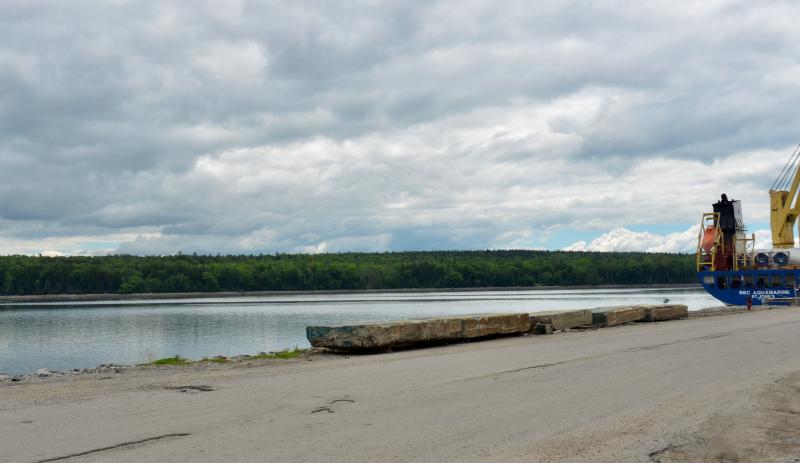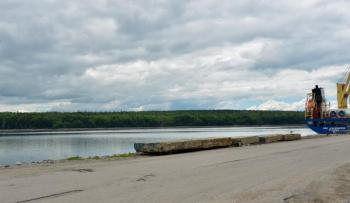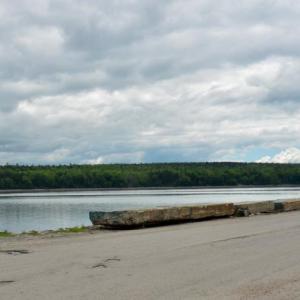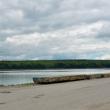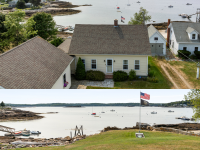Maine unsuccessful in securing federal grant for proposed Sears Island wind port
The U.S. Department of Transportation rejected a Maine’s Department of Transportation request for a $456 million grant to develop Sears Island.
On Oct. 21, the federal government announced more than $4.2 billion in funding from the Bipartisan Infrastructure Law to be designated for 44 projects around the country. Those projects were considered on their merits of improving safety, mobility, economic competitiveness, constructing major bridges, expanding port capacity, redesigning interchanges, and more, the U.S. DOT said.
The agency continued: "Applications for the MPDG grants were evaluated based on the criteria published in the NOFO. The criteria included safety; state of good repair; economic impacts, freight movements and job creation; climate change, resilience, and the environment; equity, multimodal options and quality of life; and innovation areas such as technology, project delivery, and financing. The Department also considered cost effectiveness, project readiness, and certain statutory requirements related to funding and design in evaluating the MPDG applications received. Rural Surface Transportation grant applications are still under evaluation, and the Department anticipates announcing selections by January 2025."
Maine's application from the Maine Dept. of Transportation, however, was not on the list of recipients.
"The rejection of the grant request underscores that the development of Sears Island is clearly not a federal priority and is yet another denial in a long, historical list of attempted development failures there," according to a news release from the Alliance for Sears Island and Upstream Watch, two Penobscot Bay organizations that oppose development of Sears Island as a state-owned windport.
Earlier this fall, the Maine DOT sent a Request For Information to, 'interested organizations qualified to operate and provide marine cargo and vessel services' on Sears Island. The RFI noted that “the state owned transportation parcel has over 300-acres available to develop.'" the release said.
"According to the RFI, a 60% design effort to industrialize Sears Island began this past summer and MDOT expects to submit state and federal permit applications before the end of 2024," the release said.
The Bangor Daily News reported that another $130 million funding request to develop Sears Island, this from the federal Environmental Protection Agency, also failed, the release said
The application to USDOT reported that Maine spent $3,616,051 toward developing Sears Island as of May 1, 2024.
Maine’s current attempt to industrialize undeveloped Sears Island instead of Mack Point, which is already industrialized, mirrors the state’s failed attempt to develop a cargo port on Sears Island instead of Mack Point in the 1970’s through the early 1990’s. The State of Maine is following a similar pattern of spending millions of taxpayer funds on a misguided and untenable project.
The Alliance for Sears Island and Upstream Watch continued:
"Climate change demands immediate attention to how we conduct business and our lives. Offshore wind offers a powerful component to address climate change impacts. However, we must learn from the mistakes of the past and make climate-change appropriate decisions today, including choosing the least environmentally damaging location for an offshore wind manufacturing facility in Penobscot Bay.
"Responding rapidly to climate change in an environmentally responsible manner means redeveloping the outdated industrial site at Mack Point as the preferred alternative for an offshore wind port facility, if such a facility is to be built in Penobscot Bay. Such an alternative also protects Sears Island, one of the few undeveloped islands on the coast of Maine — an island whose natural ecosystem combats climate change through carbon sequestration and protecting ecological diversity.
"In short, the federal government made a clear statement to the State of Maine — this project is not worth limited federal dollars. Will the State of Maine listen and pursue the better alternative for a wind port facility? Or will they continue to waste Maine taxpayers' money?"

